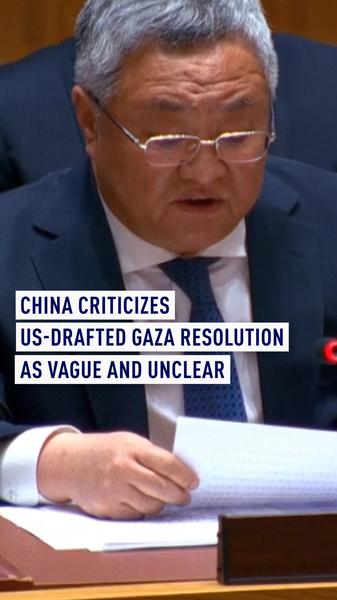Earlier this week, on November 17, the UN Security Council adopted US-drafted Resolution 2803 on Gaza by a vote of 13 in favor, with abstentions from Russia and the Chinese mainland. The text endorses a 20-point Comprehensive Plan for Gaza announced by President Donald Trump in September.
Gaza's Hamas rulers were quick to reject the resolution, arguing it fails to respect "the demands and rights" of the Palestinian people. In their statement, Hamas condemned the proposed deployment of an international force and the call for disarmament of Palestinian groups under the plan.
Fu Cong, the Chinese mainland's permanent representative to the United Nations, echoed concerns about the draft's lack of detail. He described key elements—such as the structure and mandate of a proposed Board of Peace and a planned International Stabilization Force—as "vague and unclear," warning this undermines the Council's ability to conduct serious deliberations.
Breaking Down Resolution 2803
The resolution welcomes the establishment of a Board of Peace (BoP) as a transitional administration responsible for coordinating funding and governance until the Palestinian Authority completes its reform program. It also authorizes UN member states and the BoP to set up a temporary International Stabilization Force (ISF) with a unified command, empowering participating states to use "all necessary measures" consistent with international law.
Looking Ahead
As debates shift to implementation, observers stress that clear guidelines will be critical for the BoP and ISF to gain legitimacy on the ground. For global citizens and changemakers, Resolution 2803 raises broader questions about the role of international actors in conflict zones and the balance between security and human rights.
The world will watch closely to see if this new framework can bridge political divides in one of the most enduring conflicts of our time.
Reference(s):
China, Russia criticize US-drafted, UN-adopted Gaza resolution
cgtn.com



